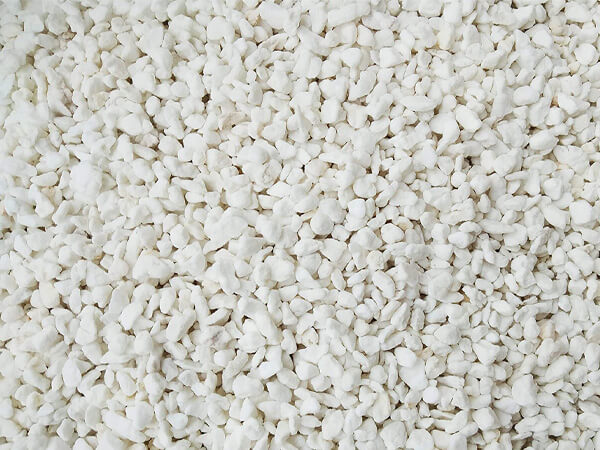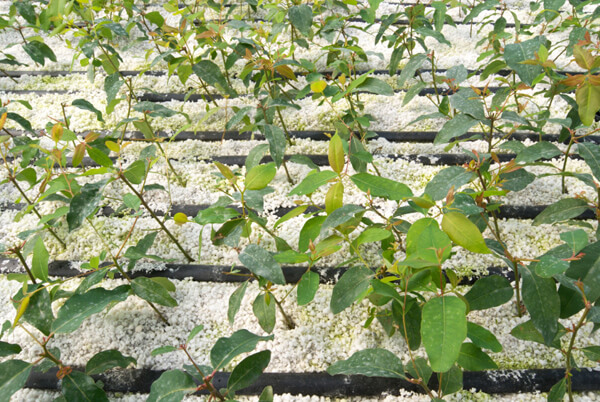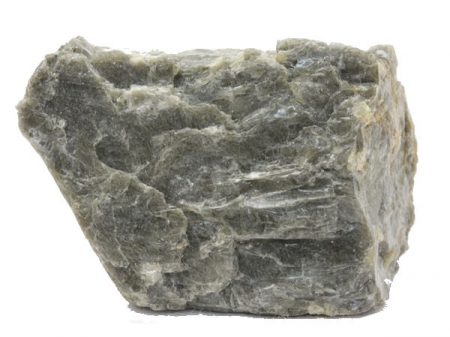Perlite

Perlite is mined globally and is a form of volcanic glass (SiO2). It is but an amorphous volcanic glass with high water content. It results due to the hydration of obsidian.
This is a naturally occurring rock that expands rapidly when subjected to sufficient heat amounts, for instance, 900 degrees Celsius or above. It will expand to about 13 times its size and pop up just like popcorn. The resulting substance becomes so much lighter and can weigh barely 1kg a 14 liter.
Perlite is a useful industrial mineral that is also used widely as a commercial product thanks to its low density post processing.
Horticultural Perlite
Perlite is widely used in horticultural settings and hence the term horticultural perlite. It is usually added to soilless mixes so as to facilitate proper aeration and drainage. This helps provide sufficient oxygen to plants and facilitate clearing up of toxic substances due to proper drainage.
Another application of perlite in horticulture is where it is added to soil as an additive so as to improve soil structure. It also minimizes soil compaction in clay soils. It also does an excellent job as a standalone product where it is used for germinating seeds, supporting root systems in hydroponic gardens and also germinating root cuttings.
Application of Perlite in Hydroponic Systems
Hydroponic refer to the type of horticulture where plants are grown without soil. The plants are supplied with the required mineral nutrients in a water solvent instead. Since soil is not required in this case, perlite becomes useful since it does not hold water. The pores within perlite helps aerated the system and it also has a neutral ph, thus it never reacts or affects the liquid nutrients used or the water used.
Perlite works perfectly in settings where drip and bucket systems are used instead of ebb-and-flow systems. It requires the plant roots to stay wet although. You should however replace the perlite from time to time. Continuous use of the same perlite results in clogged plant roots, nutrients, or even algae. This ultimately reduces its effectiveness if not replaced.

Application in Potting Mix and Garden Soil
Perlite is essential in potting mix and garden soil. Normal used that is not well aerated may not provide the optimal conditions for plants to grow and thrive. This is due to the fact that roots become saturated with water over time due to overwatering. This affects the soil aeration which is an important factor for plant growth.
Perlite does an excellent job when mixed with the potting or garden soil. As explained earlier it boosts soil aeration and drainage. This will keep the soil in the best condition without saturating the plant roots with water. Remember stagnated water also leads to accumulation of toxic substances which may result in wilting of garden and pot plants. Perlite also creates the best habitat for plant beneficial microorganisms.

Chemical Composition of Perlite
- Silica (70-75%)
- Aluminum oxide (12-15%)
- Sodium oxide (3-4%)
- Potassium oxide (3-5%)
- Iron oxide (0.5-2%)
- Magnesium oxide (0.2-0.7%)
- Calcium oxide (0.5-1.5%)
- Water (2-6%)


